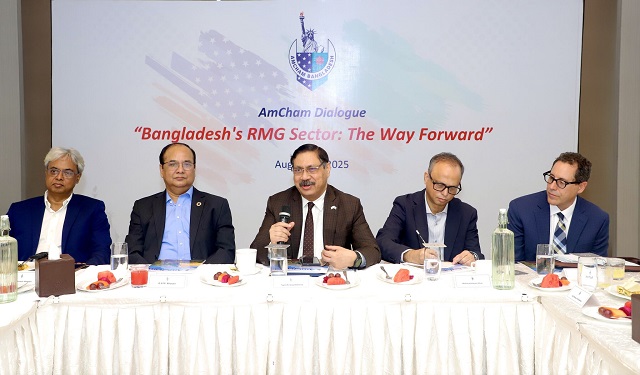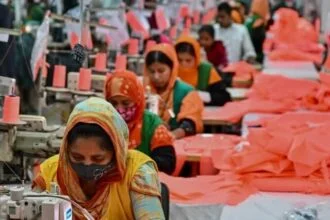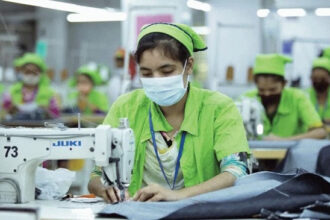Bangladesh’s ready-made garment (RMG) industry must diversify its product mix and address energy bottlenecks if it is to achieve $100 billion in exports by 2027–28, business leaders said at a meeting hosted by the American Chamber of Commerce in Bangladesh (AmCham) on Thursday.
AmCham President Syed Ershad Ahmed said garments account for more than 80% of Bangladesh’s exports and urged policymakers to adopt proactive measures to build resilience.
“With over 80% of our exports coming from garments, building resilience through diversification and proactive policy is no longer optional—it’s essential,” he told participants at the Sheraton Dhaka.
Industry leaders, including officials from the Bangladesh Garment Manufacturers and Exporters Association (BGMEA), Export Promotion Bureau (EPB), Bangladesh Investment Development Authority (BIDA), National Board of Revenue (NBR) and the US Embassy, discussed export diversification, energy shortages, productivity gaps and policy reforms.
BGMEA President Mahmud Hasan Khan warned that energy insecurity, particularly gas supply shortages, was hurting the country’s backward linkage industries. Stakeholders also noted that the cancellation of 54 letters of intent for solar projects had undermined renewable energy prospects, calling for policy clarity to restore investor confidence.
Speakers stressed the need to move beyond low-value products and expand into higher-value segments such as sportswear, green manufacturing and automated production. They also pointed to gaps in logistics, liquidity and risk governance as barriers to competitiveness.
Representatives from government agencies and the US Embassy urged greater collaboration between the public and private sectors to accelerate reforms.
Bangladesh’s RMG exports stood at about $47 billion in fiscal year 2023–24. The sector is targeting $100 billion within the next three to four years, a goal seen as ambitious without major structural and policy shifts.











